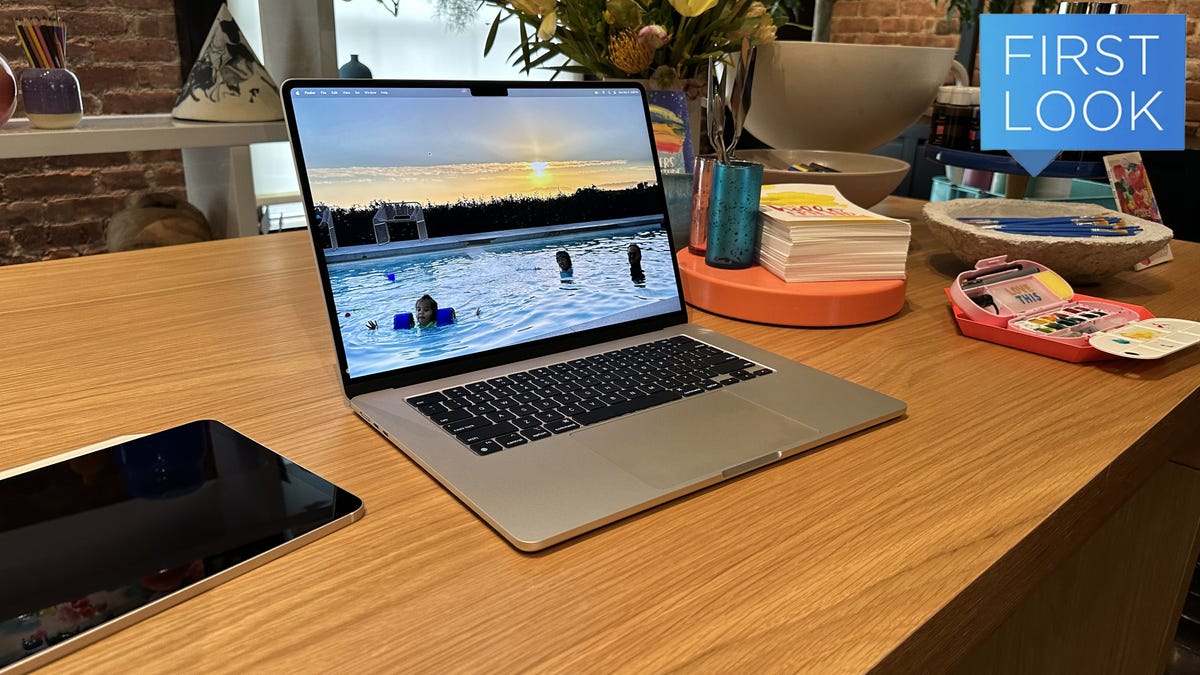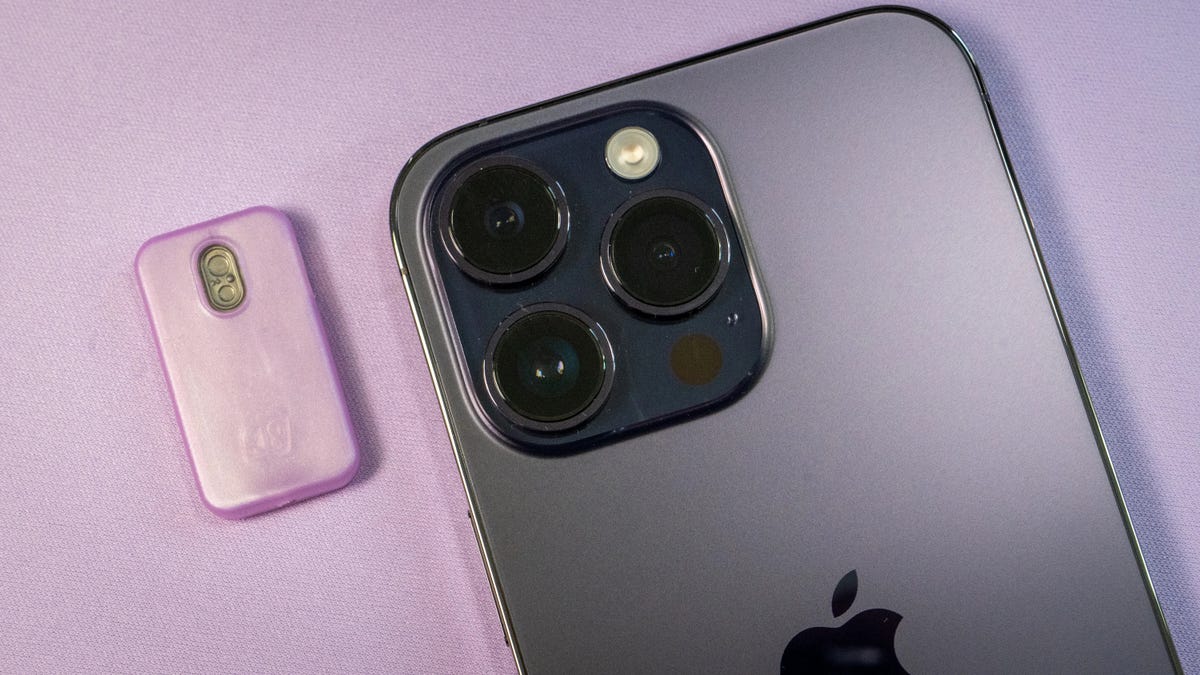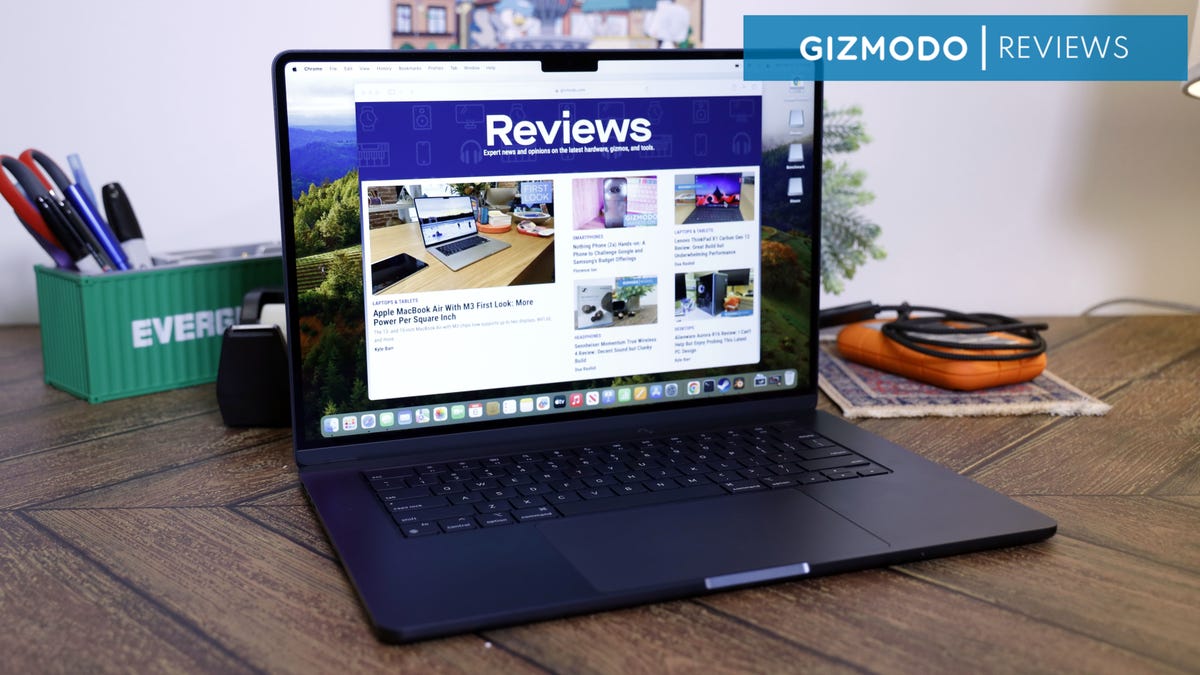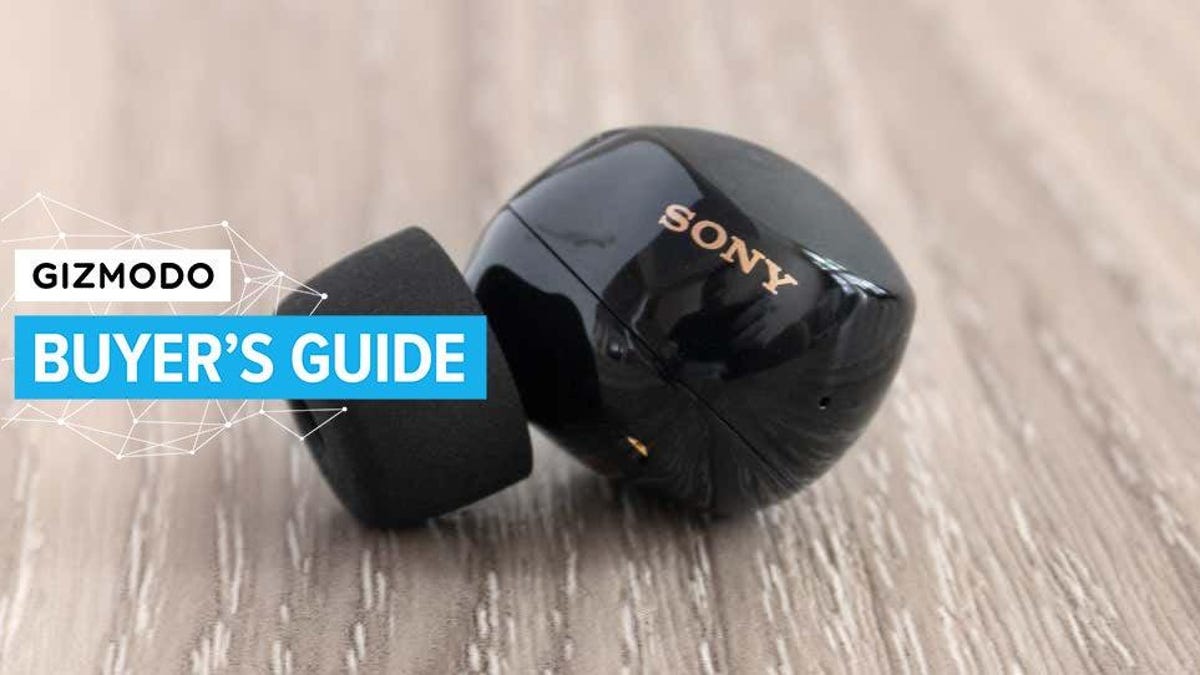Apple’s lightest laptop, the MacBook Air, is back and powered with the tech giant’s swankiest new silicon. The M3 chip that we’ve seen inside of it’s new MacBook Pro. Gizmodo had a chance to see the new Airs in person, but while the starting $1,099 laptop might look very similar to fans, most of the new you’ll care about is being stuffed underneath the hood.
While they look very similar to the 2022 Macbook Air, with all the same colorways you’ve come to expect, you’ll need to boot them up to get the real change. The laptops also now support WiFi 6E, allowing faster download speeds. Along with the speed and power of the M3 upgrade, the latest MacBook Air will support two external displays when the laptop is closed, compared to the one external monitor previous Airs could support. You won’t be able to keep the MacBook open and use both external monitors simultaneously, so keep that in mind for those looking to maximize productivity.
How Much Does the M3 MacBook Air Cost?
Apple’s latest version of the MacBook Air still comes in 13- or 15-inch varieties, and the company is touting an 18-hour battery life, though we’d need to put the laptop through its full paces before subscribing to that claim. Otherwise, they still support the IPS LCD Liquid Retina displays up to 500 nits of brightness. The new version of MacBook with M3 starts at $1,099 at 13 inches and $1,299 at 15 inches. The older rendition of the light laptop will also be a little lighter on your wallet. Those seeking out the 13-inch M2 version can now expect to pay $100 less MSRP when buying new, which is a nice deal considering the M3 version of the MacBook Pro effectively replaced the M2 version. You can preorder both devices starting Monday, and they should become fully available Thursday, March 8.
As for how it looks, there’s no major difference between this and the previous MacBook Air. It still comes in Silver, Space Gray, cream-colored Starlight, and the anodized Midnight black tone. There are two Thunderbolt ports, a MagSafe charging dock on one side, and a single headphone jack on the other. Both the 13.6-inch and 15.3-inch screens are disrupted by the notch hanging down to the top of the screen, as much as we might wish that a black bar cutting into the screen would vacate the premises.
If you like your laptops as thick as a frisbee, then the MacBook Air has long been one of the better choices for ultra-thin productivity tasks. Specifically comparing performance to the M1 version released four years ago, Apple claimed the M3-powered MacBook Air should be able to handle Final Cut Pro tasks 60% faster than the M1 for editing. You don’t get a choice of the M3 Pro or M3 Max, though you can opt for a version with a 10-core GPU, up to 16 GB of memory, and 512 GB of SSD storage.
Why is Apple Pushing AI and Gaming?
Apple’s doing a lot more to promote the power of its latest laptops, even beyond what it has in the past. It now claims the latest laptops are even better at gaming, claiming accelerated performance on games like No Man’s Sky. Of course, Hello Game’s space sim isn’t exactly pushing any system out there to the max.
The company is also pushing the power of its neural engine contained in the M3 chip, something Apple hadn’t explicitly noted during its other laptop release. As an example of AI capabilities, the company used Photomator’s Super Resolution Feature as a benchmark, claiming it ran 40% faster than the M1. While pretty much any modern machine can run Google’s or Microsoft’s AI in the cloud, the Cupertino company claims it should be able to run some AI models, such as the AI app FreeChat, on the device.
Apple would like to step into the AI conversation, especially with today’s talk of so-called “AI PCs.” Some of the latest chips from Apple and Qualcomm sport neural processing units, but Apple is keen to say it’s been doing neural processing before AI became such a completely overused—and frankly vague—term.
The Cupertino, California company is on a two-year cycle for its MacBook Airs, which seems to be best for those keen on Apple’s ultrathin design. While the MacBook Pro line received the M2 and M3 chips in the same year, the last MacBook Air benefited from the M2 far earlier, proving to be one of the better options available under Apple’s MacBook lineup. Still, even though the M2 was certainly more powerful than the M1, it wasn’t a massive jump that demanded you upgrade immediately.
Can the same be said for the M2 to M3? Apple is promoting the M3 chip as 60% more powerful than the M1, and in our recent MacBook Pro reviews and benchmarks, we found that to be fairly accurate. However, the more casual user won’t truly notice a massive difference in performance between one and the other. We’ll have to see how well the latest Air stacks up to its previous self.








